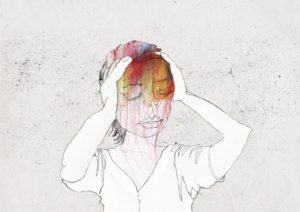Author: Laura Godenick, TICN Program Coordinator
In this article, Ed Bullmore, psychiatrist and neuroscientist based in Cambridge, UK, speaks on the new and somewhat controversial research of neuro-immunology or immuno-psychiatry. Neuro-immunology focuses on the immune system’s effect on the brain through interacting with the nervous system while immuno-psychiatry investigates how mental health is affected by the immune system. Ed relays his experience of how depressed he felt after getting a root canal surgery. He discusses the mental leap from blaming his thoughts for his mood to discovering the possibility that it could actually be the inflammation in his body’s immune system that was responsible for his depressed state of mind. He calls this phenomena “the inflamed mind” and argues that depression could be a direct result of inflammation of the body.

The current and perhaps outdated model of thinking about depression is the idea that mind and body are separate and don’t have much effect on one another, a dualist perspective from which the modern scientific revolution stems. Newer studies suggest otherwise. For instance, Bullmore discusses a study where rats are injected with an infectious bacteria and how their response is very similar to that of a depressed human, except in animals this response is called “sickness behavior”. Obviously there is still more research that needs to be done on this theory. Questions that still need to be answered include understanding why depression is the body’s response to inflammation, which is supposed to aid us in recovering from disease. Surely we evolved to benefit in some way from this kind of response. Bullmore suggests depression to simply be a way the body communicates to the mind to slow down and rest; essentially to be too depressed and unmotivated to do anything so that the body may heal.
Bullmore also discusses how people who experience abuse or adversity in their childhood are more likely to have inflammation, which would result in higher rates of mental health issues, especially depression. One of his visions for the mental health community is to shift the perspective of depression as originating in the mind to seeing it as “rooted also in the body”; to consider the possibility that depression is a “response of the whole organism or human self to the challenges of survival in a hostile world”. You can find the link to the full article here.
